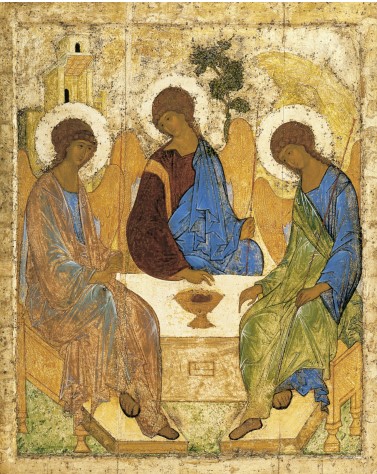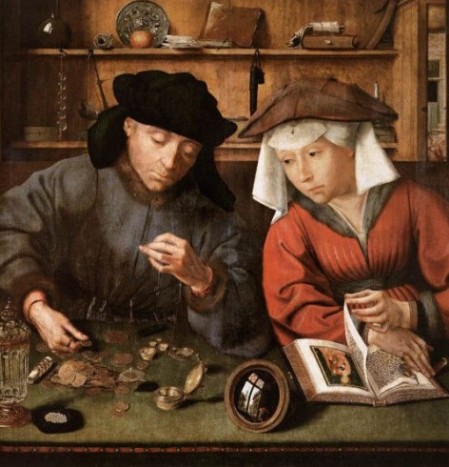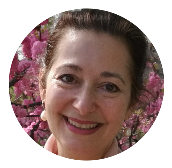On Giving: In Dialog with the Secular World
Feast of Ignatius of Loyola 2020

Andrei Rublev ca. 1411
The biggest challenge of theology today is
“to speak in the language of the secular”.
This article on giving, on Charity, is one in a series to address this aim of understanding and bridge-building with our secular brothers and sisters.
Long after my 30 day Spiritual Exercises, some fifteen years ago, a prayer for Generosity keeps coming back to me:
Lord, teach me to be generous,
to serve you as you deserve,
to give and not to count the cost,
to fight and not to heed the wounds,
to toil and not to seek for rest,
to labour and not to look for any reward,
save that of knowing that I do your holy will.
It is often attributed to St. Ignatius, but more likely it is the writing of an early 20th c. French Jesuit. 2 Nonetheless, most everyone exposed to Ignatian spirituality comes to reflect long and hard on this prayer over our life-times.
So, recently, reflecting why I do the things I do, and give what I give, the most honest answer deep down, is that I do it for the sense of connection and, as I grow older, the desire to leave a meaningful legacy, some mark on the hearts and minds of the people Imeet.
So, recently, reflecting why I do the things I do, and give what I give, the most honest answer deep down, is that I do it for the sense of connection and, as I grow older, the desire to leave a meaningful legacy, some mark on the hearts and minds of the people Imeet.
I began to wonder if I should feel guilty because at the core of my being it justfeels so good.
Looking to my secular sisters and brothers in sociology and psychology, it was reaffirming to learn that our bodies are hardwired to feel good when we are altruistic.
Looking to my secular sisters and brothers in sociology and psychology, it was reaffirming to learn that our bodies are hardwired to feel good when we are altruistic.
Ourbonding hormone, oxytocin, the one that fires off when we hug or pet, goes up.
Dopamine and endorphins active when we exercise, dance and move also kick in whenwe share and give.
Dopamine and endorphins active when we exercise, dance and move also kick in whenwe share and give.
In fact there is a growing body of secular literature around the physical and emotional benefits of giving, including reduced stress, better mental andspiritual wellness and increased self-esteem.
Because it feels good, does that make it selfish to give? Should giving feel like a sacrifice to be meaningful? I believe Ignatian spirituality would argue a resounding “No!”
First of all, no-one benefits from pain for it’s own sake, neither the giver nor the receiver.
Giving is not a punishment; it is a calling heard within our hearts, where we train to listen and feel in relationship to others. We are intimately created, “wonderfully made (Ps 139) to know and love God and to live in relationship with Him through the encounter with the other and in His creation. We might think of that warm feeling we get from giving, sharing, being together, as God’s embrace, that same embrace that sends the flood of oxytocin gushing around in our bodies when we give one-another a long, warm hug.
A few elements are essential to feeling good about feeling good when we give:
Because it feels good, does that make it selfish to give? Should giving feel like a sacrifice to be meaningful? I believe Ignatian spirituality would argue a resounding “No!”
First of all, no-one benefits from pain for it’s own sake, neither the giver nor the receiver.
Giving is not a punishment; it is a calling heard within our hearts, where we train to listen and feel in relationship to others. We are intimately created, “wonderfully made (Ps 139) to know and love God and to live in relationship with Him through the encounter with the other and in His creation. We might think of that warm feeling we get from giving, sharing, being together, as God’s embrace, that same embrace that sends the flood of oxytocin gushing around in our bodies when we give one-another a long, warm hug.
A few elements are essential to feeling good about feeling good when we give:
Freedom. Giving must come out of free choice rather than obligation. In some cultures it is expected to give gifts to receive favors in return, or to win the acceptance or the heart of the receiver. Transactional giving only creates a more vicious cycle of an obligation/guilt recursion. A pure Gift is what we receive without obligation and what we can share accordingly with Joy.
Relationship. We come to know God in relation to others, in community and as we know from Catholic social teaching: when one suffers, we all suffer. Beyond this, again our brothers and sisters in sociology and psychology teach us that giving to those whom we meet and grow to know builds meaning through relationship. Sometimes it might feel easier to just send money, but engaging in relationship will literally tug on our heartstrings, break us open, bit by bit, and allow us eventually to accept our ownvulnerability that we are all in need in one way or another. As the old song goes,
People who need people are the luckiest people in the world.
Legacy. We are all called to be generative, to participate in God’s Grand Creative Process in some way. The Spiritual Exercises also invite us to reflect on how we will be remembered. While the body may die, the memory lives on in the stories, of gratitude, warmth, joy and tears long after we are gone. Again looking to our secular brothers, our bodies may die, but the way we are remembered will actually generate the same warm fuzzies we have experienced in giving, when those we share with remember us. What we have taught, shared and given will live on long after we are gone.
Finally, most every message of Pope Francis speaks of the need to welcome, to share and to give. It is a powerful discernment exercise to listen inward to the voice of Love and to look lovingly on the world around us, to find just the right place to invest our Gifts and talents, where to share our Love. When we identify that place, that person, that cause, we will also see a reflection of ourselves and we will realize the we are all in this together.


